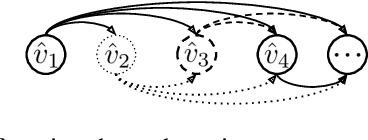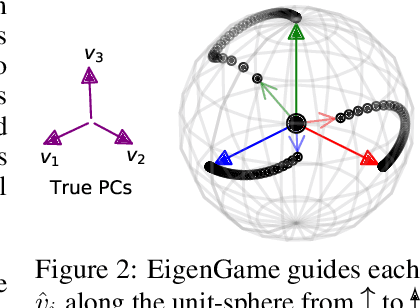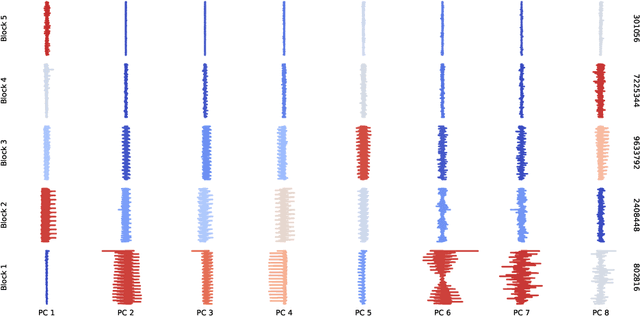EigenGame: PCA as a Nash Equilibrium
Paper and Code
Oct 01, 2020



We present a novel view on principal component analysis (PCA) as a competitive game in which each approximate eigenvector is controlled by a player whose goal is to maximize their own utility function. We analyze the properties of this PCA game and the behavior of its gradient based updates. The resulting algorithm which combines elements from Oja's rule with a generalized Gram-Schmidt orthogonalization is naturally decentralized and hence parallelizable through message passing. We demonstrate the scalability of the algorithm with experiments on large image datasets and neural network activations. We discuss how this new view of PCA as a differentiable game can lead to further algorithmic developments and insights.
View paper on
 OpenReview
OpenReview
 Add to Chrome
Add to Chrome Add to Firefox
Add to Firefox Add to Edge
Add to Edge